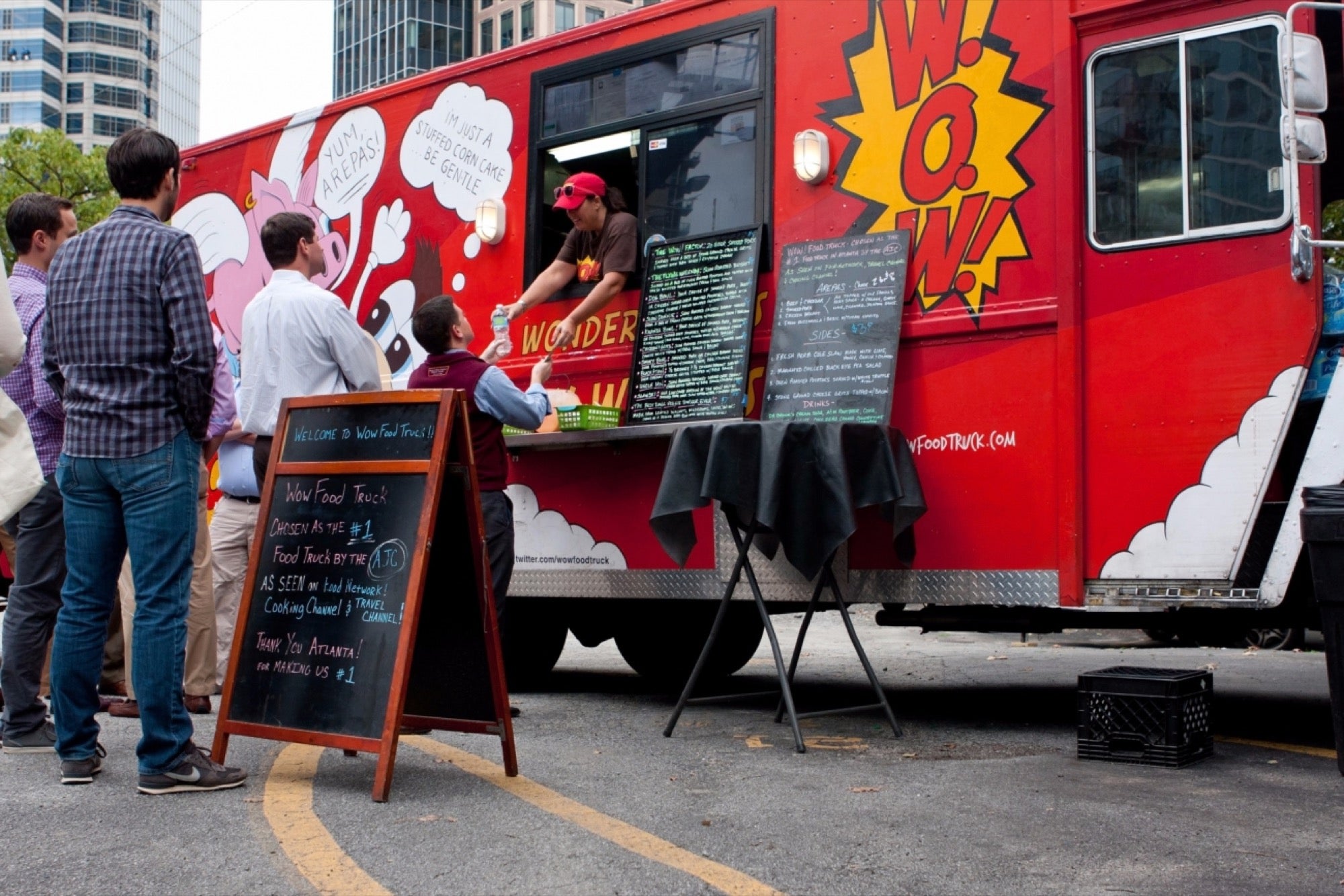How an Incubator Helped a Gluten-Free Food Truck Food trucks aren't a new concept, but mine was boosted by the new-era concept of an incubator program.
Opinions expressed by Entrepreneur contributors are their own.

Almost a third of adults in the U.S. are trying to cut back or cut out gluten entirely, according to consumer survey firm NPD Group, and looking at the sales estimates for gluten-free products, not only is this number for real, the rise may have yet to hit its peak.
For me, this isn't that surprising. I have been a reporter who has covered small business for the last seven years, and I have seen the trend and its surging uptick. I also happen to be gluten-free (per my doctor's orders). And now, after reporting on advice from so many entrepreneurs in different startup stories I've done in the past, I am starting Lola's Blue Farm, a converted 1970 VW food truck focused on a New England tradition -- fried oysters and fried clams -- but the twist is that all the items will be gluten-free.
The concept is very simple. Locally sourced ingredients. A more nutritious version of classic mainstay. A small, socially-conscious business that not only promotes good food but a cool social mission -- all happening in the summer months in Narragansett, Rhode Island.
Still, while the menu and the look and the idea itself are all very simple, actually creating it is far from uncomplicated. In fact, it's very complicated.
The first and most crucial step for me was to find a commercial-grade kitchen that had a gluten-free facility – and it was during that search I stumbled on Hope & Main, a culinary business incubator in Warren, Rhode Island, that only opened last fall.
Related: 4 Reasons You Should Consider Kissing a Journalist
Housed in a 100-year-old school house, Hope and Main is a 17,500 square-foot-space that is devoted to helping local entrepreneurs jump-start early-stage food companies by providing low-cost access to commercial kitchen space, but that is only the tip of the iceberg.
In the first week of applying to be a member, I met with the Executor Director Betsy Santarlasci, who gave me a list of all the applications I needed to apply for from the R.I. Health Department – a catering commissary license, a food safety manager certificate, a food truck license, a retail sales permit and a victualling license.
Santarlasci did not stop there. She set me up with someone who would help me write up a top-to-bottom operational plan for the business, with all the sourcing and ingredients included. She also put me in touch with a mentor.
In my case, I was lucky enough to be paired with Joe Simone of Simone's restaurant in Warren. The Brown graduate, who has been in food industry for more than 30 years and was featured on a PBS food series, was charming and full of insight. From pointing me to a good local supplier to source oysters and clams to what type of oil he prefers to cook with, Simone was very generous in his advice and experience.
Related: 3 Ways to Keep Your Startup Organized From Day One
There was also a valuable pricing workshop at Hope & Main, moderated by Todd Blount, the president and co-owner of Blount Fine Foods, a multi-million-dollar company based in Fall River, Massachusetts. Blount offered his strategies on striking the right balance with pricing and said that when you have a premium product that you want to price competitively, be sure to remember that the customer will often times pay the same amount for a higher quality but a little less quantity.
I have also been put in touch with Bleu Grijalva, one of the co-founders of New Urban Farmers in Pawtucket, Rhode Island, who is going to help me source my produce from local farmers around the Narragansett area.
In addition, there is a startup mixer planned for later this month where the 16 different businesses already working out of the facility and the 20-plus more that are in the process of being accepted will come together to meet and build on the entrepreneurial community that the incubator is helping to foster.
While Rhode Island has been one of the states hit hardest by the recent recession, it seems that the local food economy is emerging as one of the brightest spots in its economic future. Hope & Main recognizes that -- and wants to be an integral part of that success.
Being a conscientious and relatively organized person, I was not seeking out a business incubator for guidance -- but I am so glad that I happened to stumble on this spot. And I recommend that others looking to startup businesses search for incubators in their communities. It has been a vital resource so far.
Related: Got a Business Idea? Here's How to See If It's Sustainable.










